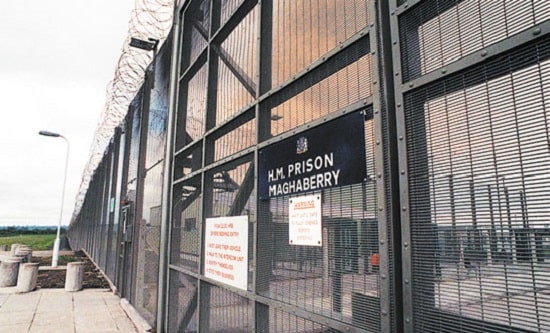
Fighting censorship of FRFI
Once again FRFI has had to write to a few prisons to remind them that our newspaper is a legal publication and that they do not have the right to stop prisoners reading it. As has often been the case, the worst culprits are not the high security prisons, who have grown accustomed to such challenges and been compelled to recognise that for once the law is not on their side, but those holding lower security Category C prisoners, such as Buckley Hall, Stocken and Hewell.
We have also seen two recent instances of prisoners coming up to parole hearings receiving security reports which include entries about how they have been in receipt of our ‘extremist’ publication. As one of those targeted in this way told us: ‘The reality is that they don’t like FRFI because it is informative and tells the truth, not just about prisons but about the whole system.’
Republican prisoners fight for books
In July political prisoners in the north of Ireland won a victory against the authorities which three months earlier had banned access to a wide range of books, including academic works such as Unfinished Business: the Politics of ‘Dissident’ Irish Republicanism, by Marisa McGlinchey, a political science research fellow at Coventry University. The north of Ireland Prison Service backed down rather than face legal action and conducted a review which accepted that the ban was ‘disproportionate’.
Prisoners in Maghaberry have now begun a second legal action against restrictions preventing them accessing the prison library.
Arbitrary bans across US prisons
In the vast unwieldy US prison system the banning of books and publications reaches new heights of arbitrary punitiveness; so much so that this year the annual ‘Banned Books Week’ organised by the NGO ‘Pen America’ is entitled ‘Literature Locked Up’. The campaign has produced a ‘reading list’ of a selection of books banned in various states. They include:
- The New Jim Crow: Mass Incarceration in the Age of Colorblindness, Michelle Alexander. Banned in Florida and North Carolina. Reasons for ban: ‘Racial overtures’ and ‘Likely to provoke confrontation between racial groups’. (After a legal challenge, the ban was lifted in North Carolina.)
- Blood in the Water: The Attica Prison Uprising of 1971 and Its Legacy, Heather Ann Thompson. Banned in Illinois, New Hampshire and Ohio. Reasons for ban: New Hampshire – ‘security concerns, encourage group disruption’; Illinois and Ohio – no reasons given
- I Know Why the Caged Bird Sings. Maya Angelou. Banned in Arizona and North Carolina. Reason for ban: ‘Sexual content’.
- The Diary of a Young Girl, Anne Frank. Banned in Guantánamo Bay Detention Camp. Reason for ban: None provided.




